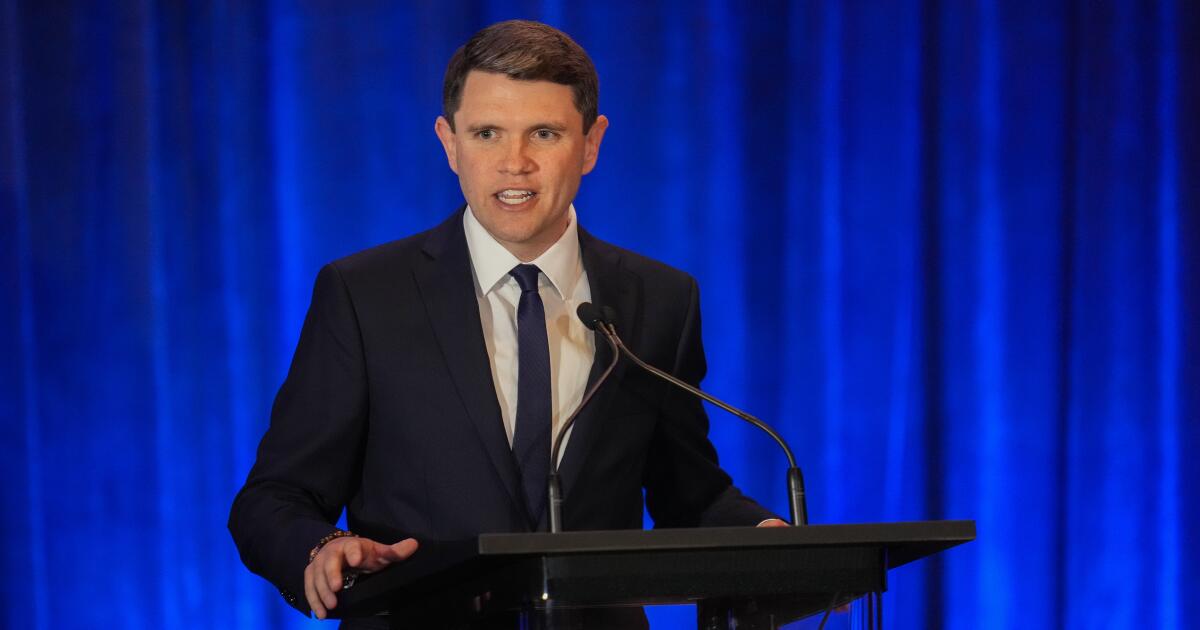Stephen Colbert calls out CBS for barring interview with Democratic candidate
The Federal Communications Commission‘s stronger enforcement of its “equal time” rules is already affecting late-night TV.
During Stephen Colbert’s Monday night monologue on “The Late Show With Stephen Colbert,” he carried on per usual, introducing the Late Show Band and his guest Jennifer Garner. He then posed the question, “You know who is not one of my guests tonight?”
The late-night host was meant to have Texas state representative James Talarico on the show. But he said on air that he was “told in no uncertain terms by our network’s lawyers, who called us directly, that we could not have him on the broadcast.”
He continued on to explain the FCC’s new guidance for equal time rules under its Chairman Brendan Carr. The rules require broadcasters who feature political candidates to provide the same time to their rivals, if requested. Typically, news content, daytime and late-night talk shows have been excluded from these regulations, as it’s been an informal tradition for presidential candidates to make their rounds on various late-night shows.
But the FCC under Carr, who has made no secret of his intention to carry out an agenda that is aligned with President Trump’s wishes, has questioned whether late-night and daytime talk shows deserve an exemption from the equal-time rules for broadcast stations using the public airwaves. Many legal and media experts have said a stricter application of the rule would be hard to enforce and could stifle free speech
“Let’s just call this what it is. Donald Trump’s administration wants to silence anyone who says anything bad about Trump on TV, because all Trump does is watch TV,” said Colbert Monday night.
Earlier this year, ABC’s “The View” featured Talarico, as well as his main rival and fellow Democrat Jasmine Crockett. Talarico is currently facing off with Crockett and Ahmad Hassan in the Democratic primary for one of Texas’ two seats in the U.S. Senate. The FCC is also reportedly investigating his appearance on “The View.”
Experts consider the equal time rule to be antiquated, designed for a time when consumers were limited to a handful of TV channels and a dozen radio stations if they lived in a big city. The emergence of cable, podcasts and streaming audio and video platforms — none of which are subject to FCC restrictions in terms of content — have greatly diminished traditional broadcast media’s dominance in the marketplace. Carr has previously suggested that if TV hosts want to include political candidates in their programming, they can do it — just not on broadcast TV.
Colbert said he was taking Carr’s “advice” and revealed that his entire interview with Talarico was instead uploaded on YouTube. During the interview, Talarico calls out the Republican Party for initially running against “cancel culture.”
“Now they are trying to control what we watch, what we say, what we read. And this is the most dangerous kind of cancel culture, the kind that comes from the top,” said Talarico. “They went after ‘The View’ because I went on there. They went after Jimmy Kimmel for telling a joke they didn’t like. They went after you for telling the truth about Paramount’s bribe to Donald Trump.”
“The Late Show with Stephen Colbert” is leaving the air come May, signaling the end of CBS’s longstanding relationship with the late-night talk show. Its cancellation was a “purely financial decision,” according to CBS. But it also came at a time when Paramount Global, which owns CBS, was seeking regulatory approval from the Trump administration to sell itself to Skydance Media. The merger was finalized in August.
L.A. Times staff writer Stephen Battaglio contributed to this report.
